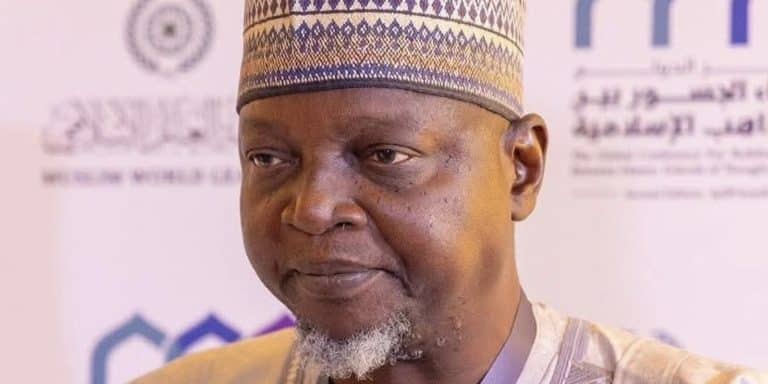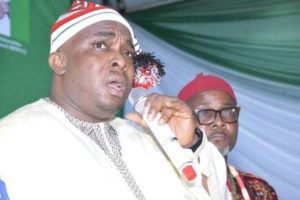
Sheikh Dr. Ibrahim Jalo Jalingo, the National Chairman of the Council of Ulama’ Jibwis Nigeria, has triggered widespread controversy following a contentious Facebook post in which he advocated for the execution of Muslims who renounce their faith.
In the now-viral post shared on Thursday, Sheikh Jalingo cited a Hadith attributed to Prophet Muhammad (PBUH) that reads: “Whoever changes his religion, kill him.” The cleric’s comment, written in Hausa, was a direct response to a social media user, identified as Masussuka, who had questioned the authenticity and compatibility of the Hadith with Qur’anic teachings.
Jalingo, an influential figure within Nigeria’s Islamic scholarly community, stood firmly by his interpretation, arguing that Islamic scripture supports capital punishment for apostasy. He referenced several Qur’anic verses most notably from Surah At-Tawbah (9:5), Surah An-Nisa (4:89–91), and Surah Al-Baqarah (2:193) to support his claim.
According to the cleric, these verses collectively form a theological basis for harsh measures against apostates and even polytheists. “The Qur’an not only sanctions the killing of apostates,” Jalingo wrote, “but also permits the killing of all polytheists.”
Addressing the commonly quoted verse in Surah Al-Baqarah (2:256) “There is no compulsion in religion” Jalingo dismissed it as no longer applicable. He invoked the Islamic concept of naskh, or abrogation, to claim that later revelations had superseded this principle of religious freedom.
In his heated rebuttal to Masussuka, the cleric used scathing language, labeling his critic “ignorant” and “morally depraved,” and accusing him of spreading misleading interpretations of Islamic texts. Jalingo claimed that many Muslims lacked the knowledge to respond to such challenges and welcomed the opportunity to publicly refute the “100 hadiths” allegedly cited by Masussuka as contradicting the Qur’an.
Expanding on his defense, the cleric argued that Hadith should not be seen as secondary to the Qur’an but as complementary divine revelation. “The Prophet said, ‘I was given the Qur’an and its equivalent with it.’ This means the Hadith is also a form of revelation,” he stated.
The post has since sparked significant backlash online, with many Nigerians expressing concern over the inflammatory nature of his statements and the potential for inciting violence. Human rights advocates and interfaith organizations have raised alarms about the implications of such rhetoric, particularly in a multi-religious and multi-ethnic nation like Nigeria, where tensions over religious freedom and extremism remain high.
As of now, neither the Council of Ulama’ Jibwis Nigeria nor national religious bodies have issued an official response to Jalingo’s remarks. However, calls are mounting for a broader conversation around the interpretation of religious texts and the boundaries of free speech in religious discourse.
Legal experts have also weighed in, noting that Nigeria’s constitution guarantees freedom of religion and belief, including the right to convert from one faith to another without fear of persecution.
This incident adds to an ongoing global debate within the Muslim world regarding the interpretation of apostasy laws, the balance between Hadith and Qur’anic teachings, and the application of ancient legal rulings in modern societies.





